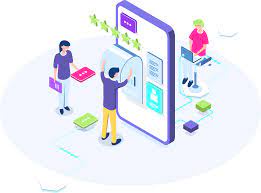The world of mobile apps is vast and ever-evolving. From games and entertainment to productivity tools and social media, there's an app for just about everything. But with two major operating systems – iOS and Android – developers face a crucial decision: which platform to target?
Understanding Android Development
Android development refers to the process of creating applications specifically for devices powered by the Android operating system. Initially developed by Android and later acquired by Google, Android is an open-source platform based on the Linux kernel and the Google Java Virtual Machine. This free-to-use nature is a major reason why many smartphone manufacturers choose Android for their devices.
iOS Development in Focus
On the other hand, iOS development involves creating apps for devices running on Apple's iOS operating system. iPhones, iPads, and iPod Touches all fall under this category. Unlike Android, iOS is a closed ecosystem, meaning app development is restricted to Apple's tools and guidelines.
The Business of App Development
When it comes to app development, the goal isn't just to create a fun or useful product, but also to make it profitable. Choosing the right platform requires careful consideration of market trends and the strengths and weaknesses of each system.
-
Market Share: Android boasts a significantly larger user base compared to iOS. Manufacturers constantly introduce new features and affordable devices to maintain this dominance.
-
Platform Revenue: While the Google Play Store offers a wider variety of free apps, Apple's App Store generally generates higher revenue. Paid apps and in-app purchases are more prevalent on iOS, despite the smaller user base.
-
Number of Downloads: The Play Store sees a higher volume of downloads compared to the App Store. This can be attributed to the wider availability of free apps on Android.
The Technical Side of the Story
Technical factors also play a crucial role in platform selection. Here's a breakdown of some key differences:
-
Programming Language: Android development primarily uses Java or Kotlin, while iOS development relies on Swift. Java and Kotlin offer more open-source flexibility, whereas Swift is designed specifically for Apple's ecosystem.
-
Integrated Development Environment (IDE): Android Studio serves as the official IDE for Android development. It's a free and versatile platform that supports various programming languages.
Conclusion: Choosing the Right Path
Ultimately, the choice between Android and iOS development depends on your specific goals and target audience. While Android offers a wider reach and greater openness, iOS development can potentially lead to higher revenue. Consider factors like your budget, development expertise, and the features you want to offer before making a decision.
Looking to develop a mobile app? For expert advice and development services, contact Tech Xpert - App Building Agency your one-stop shop for all your app development needs.


No comments yet